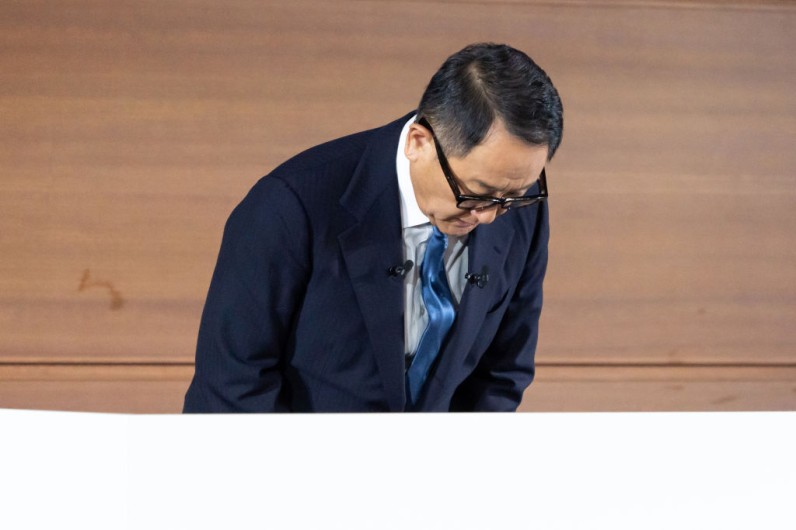
Shareholders of Toyota Motor Corporation re-elected chairman Akio Toyoda for his post on the board on Tuesday (June 18), but he was left beleaguered due to the company's governance issues and scandals involving some of its car models.
Reuters reported that, despite two leading proxy advisers recommending against Toyoda's re-election to the board, his reappointment was widely expected due to the good outcome in the company's shareholdings owned by other Toyota Group firms, record business results, and popularity among Japanese retail investors.
The company is also scheduled to release shareholder election results on Wednesday (June 19). It remains to be seen whether or not there would be significant shareholder opposition against Toyoda's re-election. Either way, the results could spur further action on governance reforms, with analysts citing an acceleration of efforts to unwind cross-shareholdings as one of the possible outcomes.
The Financial Times added that Toyoda stepped down as the company's CEO in 2023 to become its chair, with current CEO Koji Sato replacing him.
Nikkei Asia also reported that three company-proposed agenda items, including the provision on re-electing directors, were approved during the annual shareholders' meeting.
However, a shareholder proposal to amend the company's articles of incorporation to require publishing a report on its climate initiatives was rejected.
READ NEXT : Toyota Shareholders Want to Remove Chairman Akio Toyoda From the Board Over Safety Test Scandal
Praises, Condemnations of Toyoda's Re-Election
In 2023, Toyoda's approval rating plummeted to 85% from 96% in 2022 due to multiple governance and product issues across its brands and subsidiaries, including Toyota and Mazda's recent decision to halt shipments of its vehicles due to safety test irregularities.
Most opposition to Toyoda's re-election was expected to come from overseas investors, accounting for about 25% of Toyota's total shareholders.
VCPost reported Sunday (June 16) that some Toyota shareholders were keen to oust Toyoda, but Tuesday's results quashed such talks.
It could be recalled that proxy adviser Institutional Shareholder Services (ISS) took issue with how the carmaker dealt with its problems, which has been concurred by New York City's public employee pension funds.
Proxy governance service Glass Lewis recommended that Toyoda not be re-elected for a second year, saying he was responsible for the board's lack of independence. The firm was also concerned with Toyota's strategic shareholdings and return on equity.
On the other hand, Toyoda, a third-generation member of the company founder's family, remained exceedingly popular among local shareholders and retail investors, the latter accounting for 12.6% of the total corporate electoral body.
Another factor that helped his retention on the board was the company's record profits and strong stock performance.
Meanwhile, environmentalist group Greenpeace's East Asia chief Mariko Shiohata stated knowledge of Toyoda's re-election into the firm, saying that, despite his reinstatement, the fact that there are dissenters among Toyota's shareholders was enough of a message that they were "not happy with the company's direction," and that their climate lobbying was one of the poorest among world-renowned automakers.







Join the Conversation